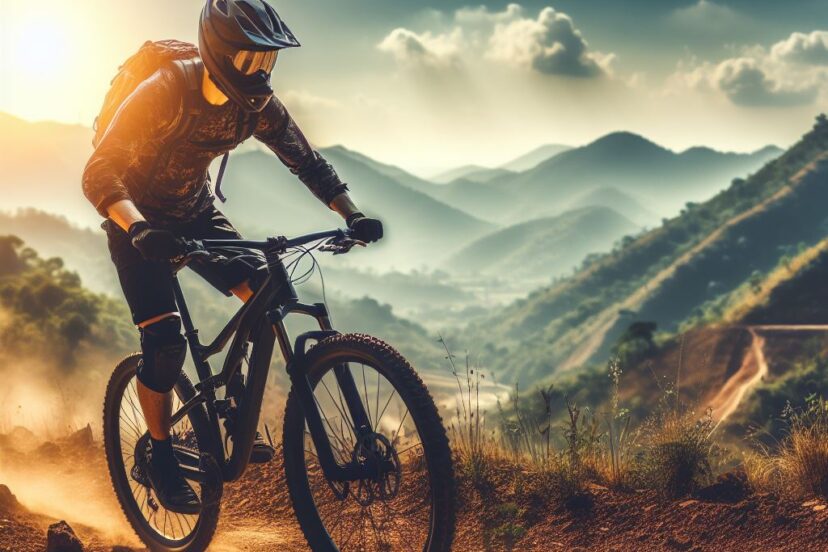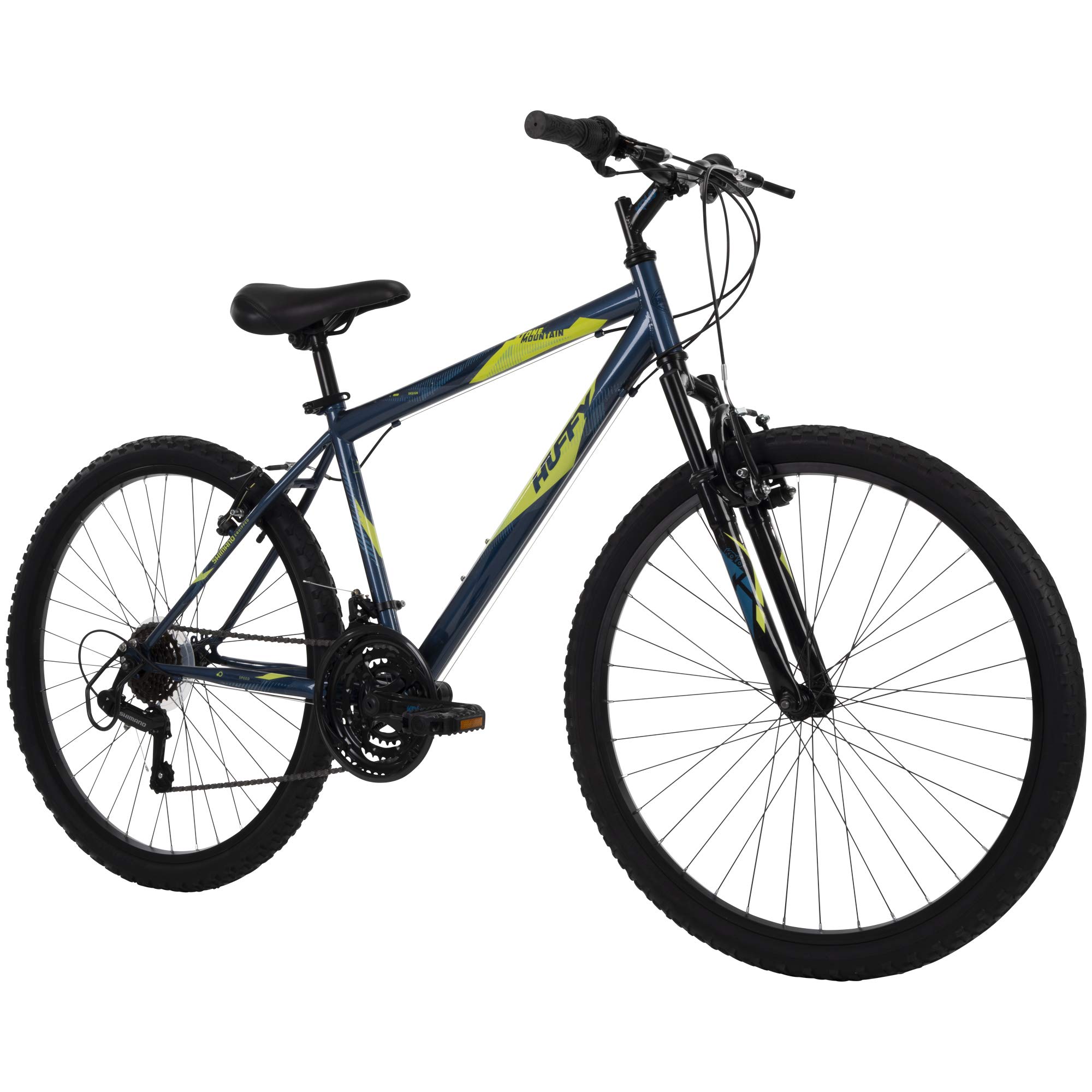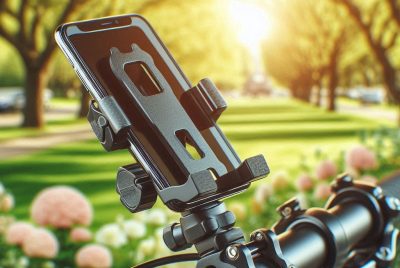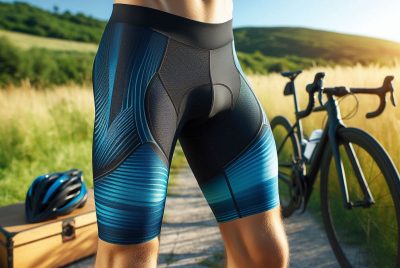Mountain Bike Brands: A Comprehensive Overview
*We may earn a commission for purchases made using our links. Please see our disclosure to learn more.
Mountain Bike Brands: Top Performers in Durability and Design 2024
Mountain biking offers an exhilarating way to explore the outdoors, providing a mix of adventure, exercise, and the opportunity to navigate a variety of terrains. It’s a sport that has seen significant growth, with enthusiasts ranging from casual weekend riders to competitive athletes. Central to the experience is the mountain bike itself, a bicycle designed specifically for off-road cycling. Durability and performance are key, as these mountain bike brands must withstand rough trails, jumps, rocks, and mud.
When selecting a mountain bike, buyers are met with a plethora of brands, each boasting unique features and technologies. This diversity allows riders to find a bike that matches their riding style, whether they prefer downhill racing, cross-country, or trail riding. A critical aspect to pay attention to is the bike’s suspension system—ranging from rigid frames and hardtails to full suspension models—since it affects control and comfort on various terrains.
I also consider frame material to be of paramount importance, as it influences the bike’s weight, strength, and overall ride feel. Aluminum, steel, carbon fiber, and titanium are common options, each with trade-offs in terms of durability, weight, and cost. Sizing is another crucial factor: a well-fitting mountain bike enhances handling and reduces rider fatigue.
Finding the right mountain bike brand can significantly improve one’s riding experience. As an avid rider, I understand the importance of each component and design nuance. I’ve dedicated many hours to comparing numerous mountain bike brands to determine which ones deliver the best performance and value. This has given me a deep appreciation for the nuances that can elevate one brand over another for specific riding demands.
Top Mountain Bike Brands
In my experience as an avid cyclist, I’ve had the opportunity to test a multitude of mountain bikes. I’ve found that the best ones combine durability, performance, and innovative design. I’ve diligently researched and ridden bikes from a variety of manufacturers, and my aim is to share with you the standout brands that consistently deliver quality and reliability on the trails. Whether you’re a beginner looking to hit the local paths or an experienced rider seeking new challenges, these are the brands that I trust for a superior riding experience.
Huffy Stone Mountain
If you’re seeking a sturdy and reliable mountain bike that’s ready for your outdoor adventures without breaking the bank, this Huffy Stone Mountain is worthy of your attention.
Pros
- The gear system with the Shimano TZ-31 rear derailleur and micro-shift twist shifter offers 21 speeds, making climbing hills a breeze.
- Its steel frame and suspension fork handle rugged terrain well, providing a smoother ride.
- Assembly is simplified with the included tools and manual, plus a helpful online video guide.
Cons
- The heavy steel frame might be less convenient for those requiring a lightweight bike.
- At a height of 5 feet, the bike may be too tall for shorter riders.
- The padding on the saddle, although premium, might not suffice for very long rides.
Riding through the trails on the Huffy Stone Mountain, I noticed right away how the front suspension smoothed out the bumpy paths. The bike’s heft lent a feeling of stability as I took on various inclines, with the 21-speed system responding well to the demands of shifting gears.
The bike arrived almost fully assembled. I appreciated the straightforward instructions and even spotted an instructional video, which made the final steps a breeze. After tightening some bolts and making seat adjustments, I was ready to take it for a spin.
The saddle’s premium padding and the slight-rise handlebars made for a comfortable ride and helped maintain an upright posture, reducing strain on my back during a day out on the trails. The knobby tires provided good traction in mixed conditions, gripping securely whether I was on gravel or pavement.
The robust frame and pleasing matte black alloy wheels create an eye-catching look that’s both stylish and functional. Although heavier than some bikes, this Huffy can handle quite a bit of wear and tear, standing out as a trusty companion on my weekend excursions.
Schwinn High Timber
I’d recommend this bike for anyone looking for a reliable, all-terrain mountain bike that balances price and performance.
Pros
- Smooth gear shifts with the durable alloy crank
- Sturdy frame and attractive design
- Quick-release seat post offers easy height adjustments
Cons
- Some assembly required, which may be a challenge for beginners
- Bulkier compared to high-end mountain bikes, affecting portability
- Not equipped with advanced features like through axles or tubeless-ready wheels
Riding through the local trails, the first thing I noticed was the High Timber’s lightweight aluminum frame, which made it fairly easy to maneuver and control. The 27.5-inch wheels had no trouble rolling over roots and rocks, offering a stable ride for a range of body types, a testament to its versatility.
Gear changes were notably smooth, thanks to the twist shifters and rear derailleur. It didn’t demand constant attention or adjustment, allowing me to focus on the trail. This feature particularly is a boon for riders transitioning from leisure to more challenging environments.
The bike’s overall construction gave me confidence on varied terrains. From gravel paths to rocky trails, the High Timber handled them all with sure-footed balance. Its wide knobby tires gripped consistently, even in damp conditions, ensuring my safety throughout the ride.
Admittedly, getting the bike ready out of the box took a bit of time; having a set of tools and some mechanical know-how was essential. Though marketed as 80% assembled, the remaining 20% could pose a hurdle for those not mechanically inclined.
For a mountain bike at this price point, it impressively holds its own against the more rugged trail demands. Whether I was zipping through a forest path or climbing a steep incline, the Schwinn High Timber was a steadfast companion. It won’t outperform the high-end specialty mountain bikes, but for everyday trail adventures, it’s a solid choice that won’t let you down.
Schwinn Bonafide
I’d say the Schwinn Bonafide is a solid choice for anyone seeking a durable and comfortable mountain bike without breaking the bank.
Pros
- Robust suspension fork smooths out rugged trails
- Reliable Shimano gear shifting for varying terrain
- Sturdy and responsive mechanical disc brakes
Cons
- Initial assembly can be tricky for novices
- The saddle might be less comfortable for some riders
- Might require fine-tuning out of the box for optimal performance
Having ridden the Schwinn Bonafide through local trails, the aluminum frame feels substantial yet agile enough to handle twists and turns with confidence. The 29-inch wheels roll effectively over obstacles, affirming the bike’s suitability for adult riders of diverse heights.
The gear system impressively manages inclines and rapid changes in trail conditions. Smooth transitions between the 24 speeds make ascents more manageable and allow for swift acceleration when needed.
What I appreciate the most is the disc brake system, which has provided me with precise and dependable stopping power, even under wet and muddy conditions. It really boosts the overall sense of control during my rides.
However, on unboxing, I spent a good amount of time on assembly and setup, which is something to keep in mind if you’re not mechanically inclined. I’d recommend factoring in potential extra time or the cost of professional help.
Another consideration is comfort — while the overall ride quality is good, I found the stock saddle to be a bit firm for longer rides, which might necessitate an upgrade.
In summary, the Schwinn Bonafide gives you a strong foundation in off-road cycling with the assurance of a well-known brand. It offers an enjoyable and competent biking experience that makes it an excellent value for its price category.
Mongoose Flatrock
I just had a blast on the trails with the Mongoose Flatrock, and I’d highly recommend it if you’re looking for a quality ride that won’t break the bank.
Pros
- Great control and a smooth ride thanks to the Element suspension fork
- Easy gear changes with the 21-speed twist shifters
- Solid and lightweight construction due to double wall alloy rims
Cons
- Some effort required to adjust the v-brakes properly
- The deep purple color can appear almost black in low light
- The assembly instructions may be slightly bewildering for bike assembly novices
Having spent a day negotiating a variety of terrain, I can safely say the Mongoose Flatrock handles like a dream. The lightweight aluminum frame made climbing hills a breeze, and the 26-inch wheels rolled over obstacles with ease. I appreciated the suspension fork which absorbed the bumps, making for a comfortable, controlled experience.
I found the gear shifting to be remarkably smooth, and the bike’s 21 speeds were more than sufficient for both steep inclines and rapid descents. It’s evident that the Flatrock is designed to cover a broad range of trails and rider sizes, accommodating comfortably those between 5’4″ and 6’2″.
Braking with confidence is essential, and once I dialed in the alloy v-brakes, stopping was sharp and reliable. The assembly out of the box took some time, but mostly because I wanted to ensure every component was perfectly tuned. The bike’s durability also impressed me; the alloy rims felt robust and are surely built to last.
For anyone on the fence about getting a Mongoose Flatrock, it’s a solid and smooth-riding mountain bike that can handle varied terrains well and stands up to the challenge of adventurous trails. It’s quite a delightful way to tackle the great outdoors.
Omelaza Folding MTB
If you’re in need of a versatile mountain bike that’s easy to transport and caters to both off-road and city riding, this one won’t disappoint.
Pros
- Adaptable to varying terrains
- Comfortable ride with dual suspension
- Convenient 21-speed gear system
Cons
- Some assembly required
- Limited customer reviews
- Steel frame might be heavy for some
Riding through the local trails, I immediately noticed how the Omelaza 26-inch Folding Mountain Bike took the rough terrain in stride. I appreciated its capability to swiftly shift gears when approaching steep climbs, a testament to the advanced 21-speed system. With just a few adjustments, I found my ideal riding position thanks to the adjustable seat.
The dual-suspension system stood out to me when I hit bumpy paths; vibrations were barely felt. My journey was further enhanced by the feeling of reliability that comes from the high carbon steel frame. For those concerned about the effort involved in the setup, rest assured it arrived mostly pre-assembled; I had it ready to go in no time.
While I zipped through city roads and alleys, the folding mechanism was a game-changer. The ability to quickly fold the bike made it excellent for storing in tight spaces or bringing it along on public transport. And although the frame is robust, I found that carrying the folded bike for longer distances could be a workout in itself, potentially a concern for those looking for a lighter model. All in all, this bike hit many marks for both fun and functional riding experiences.
Mountain Bike Brands – Buying Guide
When I choose a mountain bike, I consider several key features to ensure I make a well-informed decision. Below, I outline the important aspects to evaluate.
Frame Material
The frame is the heart of the mountain bike, and its material greatly impacts weight and durability. Typically, you’ll find:
- Aluminum: Lightweight and affordable.
- Carbon Fiber: Lighter and stronger but more expensive.
- Steel: Durable and offers a smooth ride.
- Titanium: High strength-to-weight ratio and corrosion-resistant but costly.
Bike Suspension
Mountain bikes come with different suspension setups that affect comfort and control:
- Full suspension: Absorbs most shocks; ideal for technical trails.
- Hardtail: Suspension in the front only; good for less rugged terrains.
- Rigid: No suspension; suited for riders looking for a challenging ride.
Wheel Size of Different Mountain Bike Brands
Wheel size influences the bike’s maneuverability and traction.
- 26-inch: Agile and suitable for intricate trails.
- 27.5-inch: Balances maneuverability and stability.
- 29-inch: Rolls well over obstacles, great for tall riders.
Gearing
Gears help me tackle various terrains. I consider:
- Number of gears: More gears offer a wider range.
- Type of terrain: Steep hills require more gears.
- Fitness level: Beginners may prefer more gears for easier riding.
Prices of Different Mountain Bike Brands
Lastly, my budget dictates the tier of mountain bike features I can afford. While determining the price, I factor in:
- Initial cost.
- Maintenance.
- Upgrades.
By considering all these aspects, I am confident in selecting a mountain bike that suits my riding style and preferences.
FAQs About Mountain Bike Brands
In this section, I’ll address some common queries about mountain bike brands, focusing on performance, value, brand reputation, boutique versus mainstream producers, distinctive features of American bikes, and industry leadership.
1. What are the top-performing mountain bike brands on the market?
My research indicates that brands such as Specialized, Trek, and Santa Cruz consistently top performance charts with their advanced designs and high-quality components.
2. Which mountain bike brands offer the best value for money?
Based on customer feedback and expert reviews, Giant and Marin offer excellent value, providing reliable performance at a more affordable price.
3. Are there any mountain bike brands that consumers should consider avoiding?
While I avoid endorsing negative reviews of brands, consumer reports suggest that brands with frequent recalls or consistently poor reviews should be approached with caution.
4. How do boutique mountain bike brands compare to mainstream manufacturers?
Boutique brands like Yeti and Ibis offer highly specialized and custom bikes, which often rival mainstream manufacturers in quality but can come at a premium price.
5. Which mountain bike companies are recognized as the industry leaders?
Companies such as Shimano and SRAM lead the industry in component manufacturing, while in the realm of complete bikes, Specialized and Trek are often cited as leaders for their consistent innovation and market presence.









